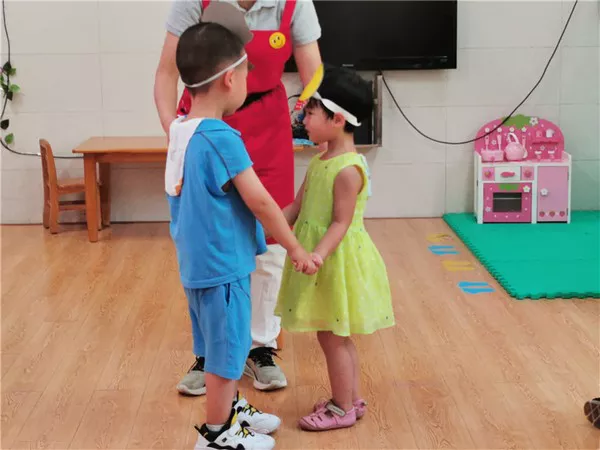Forming a new friendship involves more than just shared interests and activities; it also requires building a foundation of trust and openness. When you begin to share personal aspects of your life with a new friend, it helps to strengthen the bond and foster a meaningful relationship. This article will guide you through the process of opening up to a new friend, offering strategies to build trust, communicate effectively, and nurture a lasting connection.
Understanding the Importance of Openness
Opening up to a new friend is crucial for several reasons:
Building Trust
Trust is the cornerstone of any meaningful relationship. By sharing personal thoughts and feelings, you demonstrate that you trust the other person and are willing to be vulnerable. This mutual exchange helps build a strong foundation of trust and encourages the other person to reciprocate.
Deepening the Connection
Surface-level interactions often lead to superficial relationships. Sharing more personal information helps deepen the connection, allowing both individuals to understand each other on a more profound level. This depth of connection fosters empathy and strengthens the bond between friends.
Enhancing Emotional Support
Opening up allows you to receive emotional support and understanding from your friend. Sharing challenges, joys, and experiences creates a support system where both individuals can lean on each other during difficult times. This emotional exchange contributes to a healthier and more fulfilling friendship.
Promoting Authenticity
Being open and honest with a new friend promotes authenticity in the relationship. It encourages both parties to be their true selves, rather than presenting a facade. Authenticity helps build a genuine connection based on mutual respect and understanding.
Steps to Opening Up to a New Friend
Opening up to a new friend involves several key steps. Each step contributes to building a stronger, more meaningful connection.
1. Assess the Readiness of the Friendship
Before opening up, consider the current state of your friendship. Assess whether the relationship has reached a level where it is appropriate to share personal information. Signs of a readiness for deeper connection include:
Consistent Interaction: You have spent enough time together and engaged in meaningful conversations.
Mutual Interest: Both parties have shown interest in getting to know each other beyond surface-level topics.
Respect and Understanding: There is a mutual respect and understanding that fosters a safe environment for sharing.
2. Start with Small Shares
Begin by sharing small, less personal details about yourself. This could include your hobbies, interests, or recent experiences. Gradually increase the depth of the information you share as you become more comfortable with the person. This incremental approach helps build trust and allows you to gauge the other person’s response.
3. Choose the Right Time and Setting
Select an appropriate time and setting for deeper conversations. Choose a moment when both of you are relaxed and not preoccupied with other concerns. A comfortable and private setting, such as a quiet café or a cozy living room, provides a conducive environment for open discussion.
4. Be Honest and Genuine
When opening up, be honest and genuine about your thoughts and feelings. Authenticity is key to building a meaningful connection. Avoid exaggerating or downplaying your experiences to fit a certain image. Sharing your true self helps create a foundation of trust and encourages your friend to be open as well.
5. Use “I” Statements
When discussing personal experiences or emotions, use “I” statements to express yourself clearly and non-defensively. For example, say, “I feel anxious when…” rather than “You make me anxious.” This approach helps convey your feelings without placing blame or creating defensiveness.
6. Practice Active Listening
Effective communication involves both sharing and listening. Practice active listening by giving your full attention to your friend when they speak. Show empathy and understanding by acknowledging their feelings and validating their experiences. Active listening fosters a reciprocal exchange and strengthens the connection.
7. Respect Boundaries
While opening up, be mindful of your friend’s boundaries. Respect their comfort level and avoid pressuring them to share more than they are willing to. Mutual respect for each other’s boundaries ensures a healthy and balanced exchange.
8. Be Patient
Building a deeper connection takes time. Be patient with the process of opening up and allow the friendship to develop naturally. Avoid rushing the process or forcing deeper conversations. Let the relationship evolve at its own pace.
9. Share Common Interests and Experiences
Connecting over common interests and experiences can facilitate openness. Engage in activities or discussions that both of you enjoy, and use these shared experiences as a foundation for deeper conversations. Common ground provides a natural context for opening up and sharing personal insights.
10. Be Prepared for Different Reactions
Understand that your friend may have different reactions to your openness. They may respond with empathy and understanding, or they may need time to process the information. Be prepared for a range of responses and approach the situation with an open mind.
11. Reflect on the Experience
After sharing personal information, take time to reflect on the experience. Consider how it impacted your relationship and whether it contributed to a deeper connection. Reflecting on these moments helps you understand the dynamics of the friendship and guide future interactions.
12. Maintain Consistency
Consistency in communication and openness is important for building a strong friendship. Continue to share and engage in meaningful conversations, and support your friend in their own journey of openness. Consistent efforts reinforce the trust and connection established in the relationship.
See Also: How Do You Know if a Relationship is Going Well?
Overcoming Challenges in Opening Up
Opening up to a new friend can come with challenges. Here are some common obstacles and strategies to overcome them:
Fear of Rejection
Fear of rejection is a common concern when opening up to someone new. To overcome this fear, focus on the potential benefits of sharing and the value of authentic connection. Remind yourself that vulnerability is a strength and that building meaningful relationships involves taking risks.
Previous Negative Experiences
If you have had negative experiences in the past with opening up, it may affect your willingness to be vulnerable. Take time to heal from past experiences and recognize that each new relationship is an opportunity for a fresh start. Approach the new friendship with an open mind and avoid letting past experiences dictate your current interactions.
Uncertainty About What to Share
If you are uncertain about what to share, consider starting with less personal topics and gradually moving to more significant matters. Reflect on your own comfort level and what you feel ready to discuss. It is important to share at a pace that feels right for you.
Navigating Sensitive Topics
When discussing sensitive topics, approach the conversation with care and empathy. Be mindful of how your words may impact your friend and avoid discussing topics that may be too personal or triggering for them. Establish a safe and respectful environment for such discussions.
Building a Lasting Friendship Through Openness
Opening up to a new friend is just the beginning of building a lasting and meaningful relationship. Here are additional tips to nurture and sustain the friendship:
Foster Mutual Support
Support each other through challenges and celebrate successes together. A strong friendship involves being there for each other and providing encouragement and understanding. Mutual support reinforces the bond and creates a sense of partnership in the relationship.
Communicate Regularly
Maintain regular communication to keep the friendship active and engaged. Reach out to each other, share updates, and stay connected through various means, such as calls, messages, or social media. Regular communication helps sustain the connection and reinforces the friendship.
Engage in Shared Activities
Participate in activities that both of you enjoy and that strengthen the bond. Engaging in shared interests or trying new experiences together creates lasting memories and reinforces the connection between friends.
Show Appreciation
Express appreciation for your friend and the relationship. Acknowledge their efforts, express gratitude for their presence in your life, and celebrate milestones and achievements together. Showing appreciation fosters a positive and supportive environment in the friendship.
Seek Feedback and Growth
Seek feedback from your friend and be open to growth and improvement in the relationship. Discuss how the friendship is evolving and address any concerns or areas for improvement. This openness contributes to a healthy and evolving friendship.
Conclusion
Opening up to a new friend is a crucial step in building a strong and meaningful relationship. By assessing the readiness of the friendship, starting with small shares, choosing the right time and setting, and practicing effective communication, you can foster trust, deepen the connection, and create a supportive and fulfilling friendship. Overcoming challenges and nurturing the relationship through mutual support, regular communication, and shared experiences further strengthens the bond. Remember, building lasting friendships involves ongoing effort and authenticity, and the rewards of genuine connections are well worth the journey.
Related topics:




























